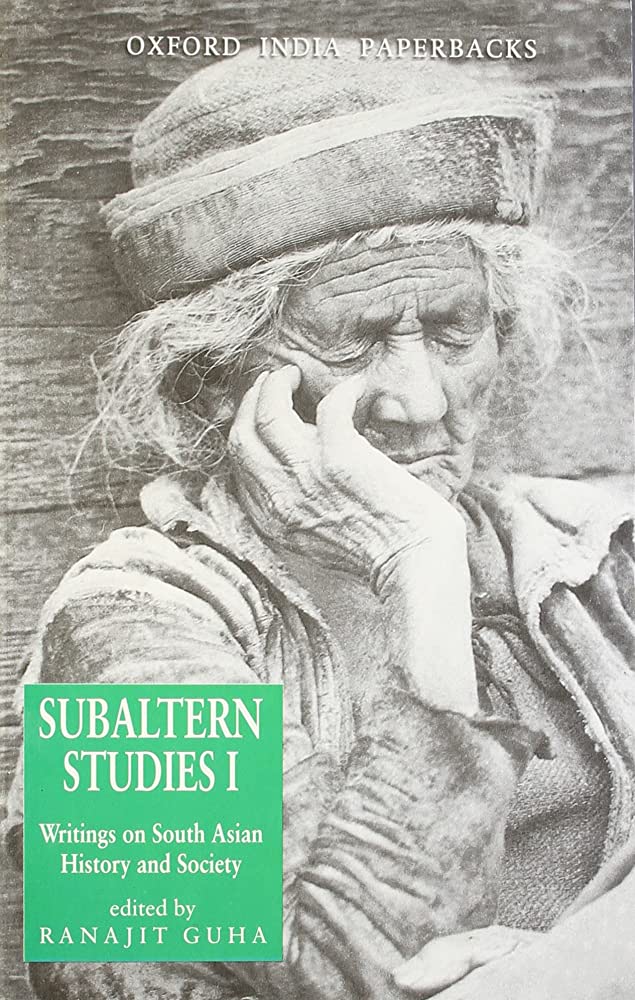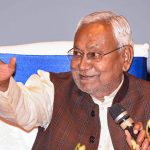Dr. Ranajit Guha, the most globally known Indian historian who introduced a new approach to history writing through his ‘subaltern studies’, passed away on April 28, less than a month before the Renaissance man was due to touch his 100th year on May 23. He was intellectually active till the end. Since 1999, he spent his last 23 years in his villa in Vienna, Austria.
Born in 1923 in the then Bakharganj district of undivided Bengal, now in Bangladesh, Guha belonged to a well-to-do landowning family. His father was a leading lawyer and he imparted in him nationalist ideas during his school days. Guha, ever curious and a voracious bookworm from his Mitra Institution days, saw a new phase when during his college years in Presidency College, the bookish young man became an activist of the CPI-dominated Students Federation.
He was a favourite student of the legendary Susobhan Sarkar, who headed the history department in those days. Guha passed his M.A. in history from Calcutta University, but by then he was a CPI full-timer, and his organisational talent was taken note of by the party leadership. Guha was sent to Paris in 1947 as the CPI’s nominee in the World Federation of Democratic Youth, which was very active in the post Second World War period. Guha did his job extremely well during his seven-year tenure in organising the youth movement globally.
During this period, he was also a key person monitoring the activities of the Indian students who were close to the CPI at that time. The veteran CPI leader Mohit Sen wrote in his memoir that it was Ranajit Guha who conveyed to him the directive from the CPI high command that after his term in Cambridge, he would have to be in China for three years in the International Party School. Ranajit came back to Calcutta in 1953 and started teaching in a number of colleges, before finally joining Jadavpur University. Soon, he found the young Amartya Sen as a colleague in the newly set up economics department.
About Guha, Amartya Sen writes in his memoir: “Ranajitda and the circle around him were not only intellectually important for me, they also contributed greatly to my social life in Calcutta. Regular conversations with the group were a huge addition to my life as a young teacher in Calcutta. When Dharma Kumar visited Calcutta and came with me to Ranajitda’s addas, she expressed astonishment at the range of issues we managed to discuss in our evening gatherings. Even now, I feel that as academic discussions go, it would be hard to match those in the small unassuming apartment in Panditiya Road in the mid-1950s”.
Ranajit Guha left Jadavpur University and Calcutta in 1959, and since then he was based abroad at different universities. But the strong foundation of his future career, as one of the most influential historians in the world, was built during this six-year stay in Calcutta between 1953-59. He started his doctoral on the changing features of the industry, agriculture and revenue under the East Indian Company. His first piece out of this research was published in Bengali in the journal ‘Itihash’, edited by Dr. Ramesh Chandra Majumdar and Dr. N K Singh, two famous historians of that time. The piece was on ‘Salt Industry in Midnapore’. It was published in 1954.
This was followed by his controversial piece in the leading literary monthly ‘Parichay’ close to the Left. Guha started a series on the Permanent Settlement and its consequences. The approach was so innovative compared to the conventional Marxist thinking that there was a big uproar and before the series could be completed, he was compelled to discontinue it. Guha had no formal membership of CPI at that time, but he was working hard for his doctoral thesis. This was completed during later years abroad. In 1960s, Guha wrote ‘A Rule of Property in Bengal’, published by a leading publisher in Paris with the assistance of the American economics scholar Daniel Thorner, who was then living in Paris after leaving USA due to the McCarthy period of anti-communist vendetta. The publication of this essay established Guha as an up and coming historian of promise, who was setting new parameters of looking at history.
Guha was in Sussex University till 1980 and then he went to Australia and was a teacher at the Australian National University for eight years. From 1988 till his shifting to Vienna in 1999, he was mostly visiting faculties in different universities around the world. During his stay in Australia, he edited six volumes of the Subaltern Studies. In 1989, he retired from his editing work of the subaltern volumes and handed over the task to his younger colleagues. He diversified his reading into other areas of knowledge including philosophy, linguistics, and, especially, Bengali literature.
Interestingly, Guha did not publish any major work during his stay at Sussex University. But he came out with a seminal work, titled ‘The Elementary Aspects of Peasant Insurgency in Colonial India’. This book had its origin during his tenure in Delhi University in 1970-71 when he had discussions with a number of Naxalite leaders, including the students. He extensively studied the background of the movement in Bengal and Andhra Pradesh during the Naxalbari period and incorporated those insights in his 1983 book. But before that in 1982, the first volume of the Subaltern Studies was published under his stewardship. Before this English publication, Guha read a piece, a sort of the synopsis of his understanding of history, in his erstwhile department at Calcutta University. This piece was published in the Bengali literary quarterly ‘Ekshan’.
While the academic community of historians was familiar with Guha’s areas of expertise and his redefining of history-writing, but for the Bengali readers, it was something unprecedented, when Guha started writing in his mother tongue from 2007 onwards and even publicly declared, he would only write in Bengali now. He had been doing that for the last fifteen years till his very last. Even last month, in discussions with the Chicago-based historian Prof. Dipesh Chakraborty, he mentioned some of his new ideas, the new books he had read, as well as commented on the political and literary trends in Bengal.
In 2009, Ranajit Guha was 86. He came out with two Bengali-language books, a critical analysis of varied issues of the Bengali literature, covering works by Tagore, Bankimchandra and even the recent poets such as Sankha Ghosh, Sunil Ganguly, Utpal Kumar Bose, among others. He gave a new understanding to the last part of Mahabharata. The leading literary critics of Bengal were stunned. What a way of looking at the characters and the ambience! The leading literary theorist of Bengal Dr. Sukanta Chowdhury, in his introduction to Guha’s latest collection of writings in Bengali, writes that after Buddhadeb Bose and Sudhindranath Datta, no other critic has traversed with such ease and with such clarity the vast canvas of Bengali literature. For a long time, no Bengali critic had founded his or her analysis on such strong theoretical understanding.
Ranajit Guha was given the Ananda Puraskar, the biggest non-official award in Bengal for his literary work in 2009 . He visited Kolkata and received the award. It was a great moment for him also because he loved this city from his heart and he used to tell his friends that even while travelling all across the world in the best cities, he carries a bit of old Calcutta with him. In his address while receiving the award, Guha said in 2009: “I came to Kolkata seven years ago, the city has changed in this period. What is left behind also changes, those who return also are changed.”This Bengali historian, a living legend until he passed on Friday at the ripe old age of 99, who loved intensely his city of birth and childhood, and his country India even though living abroad for 64 years, has now joined the pantheon our literary greats who reside in the celestial commune among the stars. (IPA Service)

 Bihar Chief Minister Nitish Kumar Is Taking Right Steps To Forge Opposition Unity
Bihar Chief Minister Nitish Kumar Is Taking Right Steps To Forge Opposition Unity 